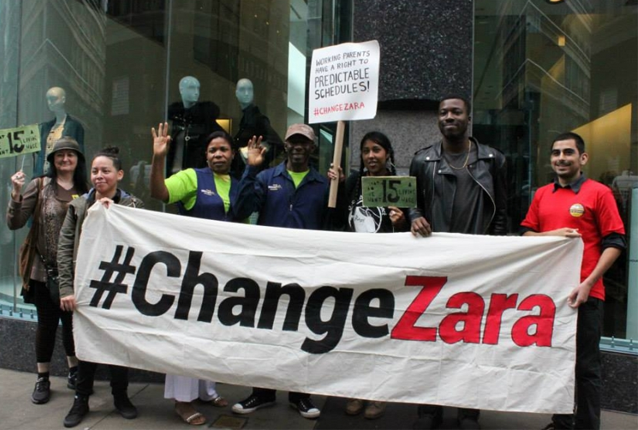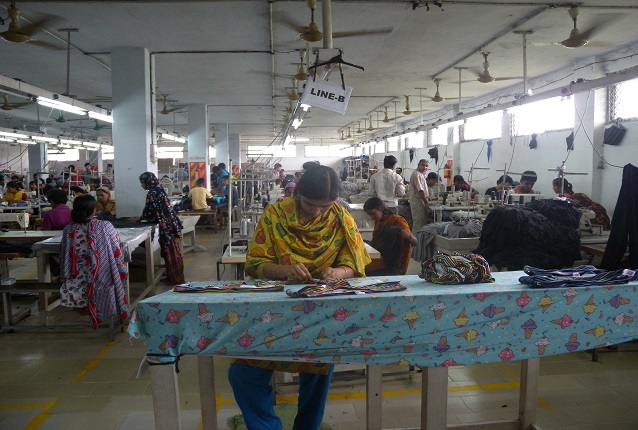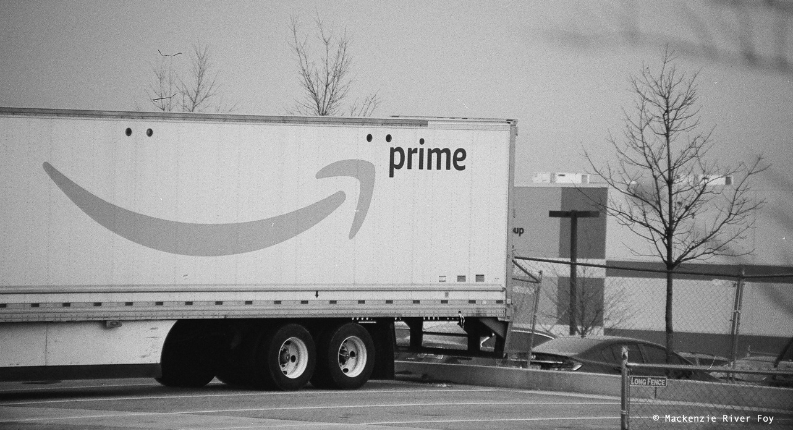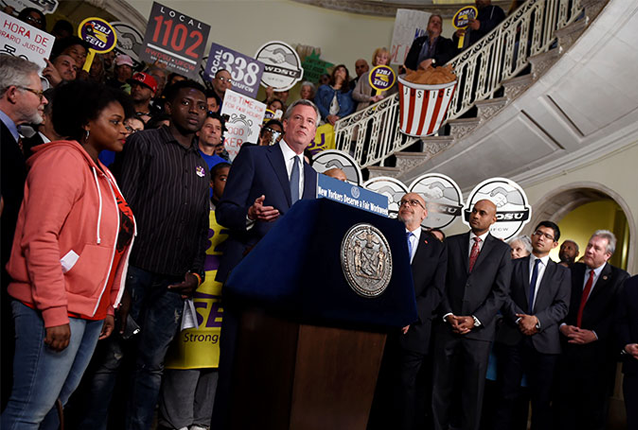Last month, the United Food and Commercial Workers union announced that more than 1,000 employees at Zara’s New York City locations voted to join together in union. This news marks the biggest retail organizing victory since 1,200 sales associates at H&M came together to improve their working conditions in 2009. What contributed to the organizing victories at the European-based “fast-fashion” retailers? The retail associates at Zara and H&M were able to secure a say over their jobs through a Global Framework Agreement.
A GFA is an agreement, usually non-binding, between an international company (in the case of Zara, its Spanish parent company, Inditex) and a Global Union Federation (GUF). These union federations are made up of unions from nearly every country on Earth and are usually divided by sector.
This alphabet soup can make things confusing, but here’s what these global agreements boil down to: a globally negotiated agreement between unions and companies that establishes the rules for how people can join in union at their workplace. Agreements can cover timelines to when an election will be scheduled, to what workplaces can be part of the organizing, how and when the union and management can have private meetings with the store’s employees, and much more. They also cover the company’s entire footprint. For instance, the agreement reached between the global federation of retail employees (UNI) and Inditex bolstered the ability of everyone who works for the massive retailer—from the United States to Japan to Turkey–to come together for a fair return on their work.
These agreements are similar in approach to the neutrality agreements that U.S. unions negotiate with employers. Unions of working people look to a company that they have either had trouble organizing on a country-by-country basis, or one that they believe they could organize in a coordinated way. Since these are voluntary agreements, engaging a company to agree to one depends on the company’s culture and the union’s density, market dominance and reach. Inditex’s top leadership in Spain is considered hospitable to working people in union, but corporations that aren’t may sign the agreements because they are not interested in a protracted fight. That is called the power of working people.
Global agreements have their weaknesses. Most are non-binding, but unions are creating new ways to enforce them, such as including joint union-management monitoring or an independent mediator. Implementation can also vary in ease and duration by country, depending on the political and economic climate.. But in a world where corporations can move freely across borders and operate without regard to individual national laws, working people must have tools that allow them to negotiate with those corporations across the same borders. Initiatives like the Asia Floor Wage Alliance or the agreements reached with Inditex represent experiments in trying to swing the pendulum of power back towards working people.
Given the low job standards in retail work, it’s significant that the people who work at Zara stores in NYC have earned a say over how their work gets done. Moreover, the victory signals that global frameworks can be a tool that paves the way for more opportunities for women and men in retail to achieve better workplaces and better lives.




